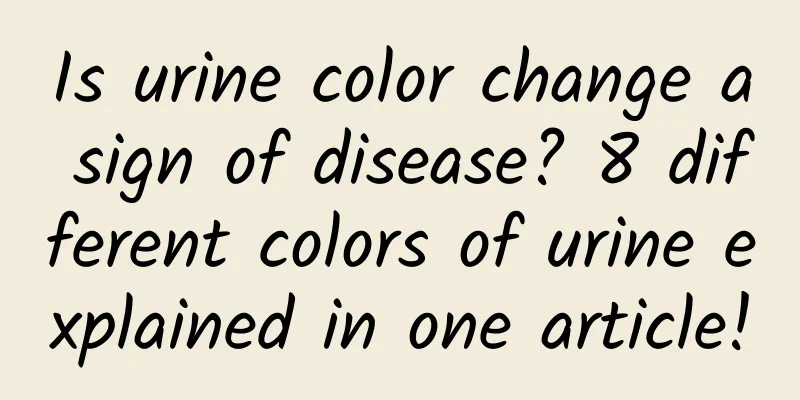When puberty meets gingivitis

|
Adolescence is the most important period in a teenager's life. Physiologically, the hormone secretion in teenagers is vigorous and the body develops rapidly; psychologically, teenagers gradually form their own personality and behavioral habits. Therefore, during this period, both oral health and behavioral habit cultivation are particularly important for teenagers' lives. What is adolescent gingivitis? Adolescent gingivitis refers to chronic nonspecific gingivitis that occurs in adolescents. This inflammation is more likely to occur on the cusp papilla and gingival margin on the labial side of the front teeth, and less likely to occur on the lingual gingiva. The labial gingiva is obviously swollen, so when these symptoms appear, most people will not pay attention to them and simply think that it is caused by inflammation. Main causes: 1. Local irritation factors: Dental plaque is the main cause of adolescent gingivitis. Due to the lack of good oral hygiene and cleaning habits, dental plaque accumulates on the surface of teeth, irritating the gums. 2. The influence of hormonal changes: During puberty, the body produces more sex hormones (mainly estrogen and testosterone). The gums are the target organs of sex hormones. These hormones increase blood flow to the gum tissue, making the gums more sensitive and prone to inflammation. Therefore, even a slight accumulation of dental plaque can lead to a serious inflammatory response. 3. Teenagers at this stage often have uneven teeth after tooth replacement, mouth breathing, and wearing orthodontic appliances, which makes it difficult to clean their teeth. If good oral hygiene habits are not maintained, it is more likely to cause plaque retention and cause gingivitis. Typical symptoms of adolescent gingivitis include: 1. Swollen and red gums 2. Your gums bleed easily when you brush or floss your teeth 3. Gum sensitivity or discomfort 4. Most of them have the characteristics of gingival hyperplasia 5. Bad breath Treatment : When symptoms of gingivitis appear in the mouth, most people will not pay attention to it and simply think it is caused by inflammation. The treatment of adolescent gingivitis is to remove plaque and tartar through scaling, and gingivectomy is used in severe cases. 1. Topical anti-inflammatory drugs 2. Use ultrasonic dental scaler or manual scaler to remove soft plaque and tartar attached to the surface of teeth, reducing local irritation 3. Patients with excessive gum hyperplasia need to undergo surgery to remove part of the gums. 4. Develop good oral hygiene habits and master the correct brushing method to prevent recurrence. Maintaining good oral hygiene is key to preventing and controlling gingivitis during adolescence. Teens are advised to: 1. Brush your teeth at least twice a day, using fluoride toothpaste 2. Floss between teeth every day 3. Use mouthwash regularly to reduce bacterial accumulation 4. Replace your toothbrush regularly to ensure the effectiveness of the bristles 5. Teenagers who wear braces should buy a special orthodontic toothbrush Healthy eating habits and lifestyle: 1. Reduce your intake of high-sugar foods and drinks to reduce the risk of dental plaque 2. Increase your intake of foods rich in vitamins C and D to strengthen gum health 3. Avoid smoking and alcohol, which can have a negative impact on oral health Regular dental check-ups **:** Teens should have regular dental checkups. Dentists can help identify early oral health problems through professional exams and cleanings, and provide treatment recommendations. |
<<: What should I do if I have freckles at a young age?
Recommend
Hemolytic disease of the newborn: from prevention to treatment, all-round protection of baby's health
Author: Zhong Yan, Chief Physician, Beijing Child...
How to eat walnuts after pregnancy?
Many people would tell pregnant women to eat more...
Can I drink mineral water during my period in summer?
You cannot drink purified water during your perio...
What is the best way to wash the vulva? Precautions for washing the vulva
In case it is the female's external genitalia...
What is the cause of eczema in late pregnancy
Eczema occurring in the late pregnancy has a rela...
Severe pelvic adhesions
The pelvic tissue of the human body mainly includ...
Is cervical cancer screening painful?
TCT is the general name for liquid-based cytologi...
What medicine is effective for pelvic inflammatory disease
Pelvic inflammatory disease is a common gynecolog...
Why does my stomach hurt on the right side?
In daily life, people sometimes feel pain on the ...
At what age do women have the strongest sexual desire?
Every woman has sexual needs, and sex life is ind...
How to treat a fast heartbeat in a pregnant woman
Many pregnant women experience an accelerated hea...
What should women do if they suffer from nephrotic syndrome?
Women's health is very fragile. They can easi...
How can pregnant women remedy exposure to secondhand smoke?
Pregnant women should try their best to avoid bei...
Can't get pregnant after a few days of menstrual period
In order to make their two-person world last long...









